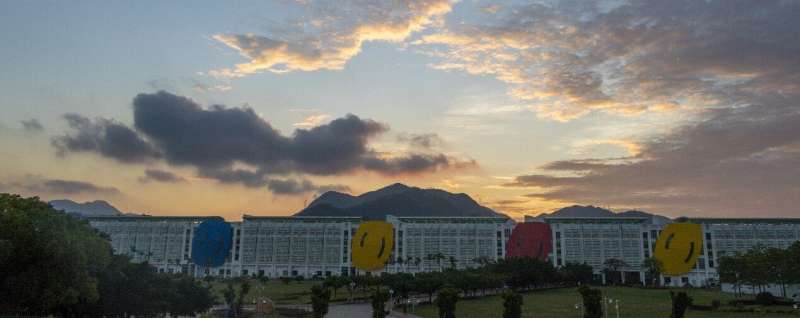#Exaggerated radar data above the freezing level induced by terrain

“#Exaggerated radar data above the freezing level induced by terrain”

Meteorologists frequently study precipitation events using radar imagery generated at both ground level and from satellite data. Radar sends out electromagnetic waves that bounce off ice or water droplets suspended in the air. These waves quickly return to the radar site in a process called backscattering. Scientists have observed that backscattering reaches its peak during the melting process as water falls through the atmosphere. High backscattering typically results in warm color returns on a radar displays, indicating heavy precipitation.
However, recent case studies noted that partially frozen droplets seem larger to radar than their solid and liquid counterparts of the same size, resulting in radar overestimating the precipitation rate. These studies also suggest that radar exaggeration may occur at a second level of the atmosphere, above the freezing level, especially on the windward slopes of mountain ranges. This phenomenon is known as ‘reflectivity maxima above freezing,’ or RMAF.
“Quantitative studies are limited due to the lack of adequate identification criteria,” says Dr. Aoqi Zhang, the first author of the study just published in Advances in Atmospheric Sciences. “We must establish a new method for identifying RMAF structure within radar echoes.”
Dr. Zhang and Dr. Chen from Sun Yat-sen University developed and applied their new method to analyze five specific criteria to all vertical precipitation profiles in the TRMM satellite radar dataset for 1998-2013. Their results found 2,736,225 RMAF events and 854,622,978 non-RMAF events, respectively.
“The RMAF structure in reflectivity profiles can be effectively identified by our method,” says Dr. Zhang. “We also proved that RMAF is positively correlated with elevation, which is thought to be caused by enhanced updrafts in the middle layers of stratiform precipitation, or in the low to middle layers of convective precipitation over mountains.”
This study showed why RMAF events occur specifically on windward slopes above the freezing level. Increasing mountain elevation enhances precipitation-creating updrafts as wind follows terrain upward in what is called orographic lift. This study also revealed that the precipitation properties of RMAF events and non-RMAF events are significantly different.
“The RMAF structure increases the echo top height and enhances precipitation processes above the RMAF height, but it suppresses the downward propagation of ice particles and the near-surface rain rate,” says Dr. Chen. “Future studies of orographic precipitation should take into account the impact of the RMAF structure and its relevant dynamic triggers.”
NASA measures altitudes of Hawaii’s rain, snow
Aoqi Zhang et al, Satellite Observations of Reflectivity Maxima above the Freezing Level Induced by Terrain, Advances in Atmospheric Sciences (2021). DOI: 10.1007/s00376-020-0221-5
Citation:
Exaggerated radar data above the freezing level induced by terrain (2021, February 17)
retrieved 17 February 2021
from https://phys.org/news/2021-02-exaggerated-radar-terrain.html
This document is subject to copyright. Apart from any fair dealing for the purpose of private study or research, no
part may be reproduced without the written permission. The content is provided for information purposes only.
If you liked the article, do not forget to share it with your friends. Follow us on Google News too, click on the star and choose us from your favorites.
For forums sites go to Forum.BuradaBiliyorum.Com
If you want to read more Like this articles, you can visit our Science category.



